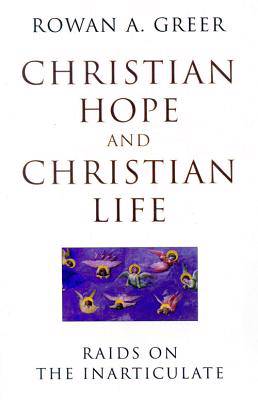
Door een staking bij bpost kan je online bestelling op dit moment iets langer onderweg zijn dan voorzien. Dringend iets nodig? Onze winkels ontvangen jou met open armen!
- Afhalen na 1 uur in een winkel met voorraad
- Gratis thuislevering in België vanaf € 30
- Ruim aanbod met 7 miljoen producten
Door een staking bij bpost kan je online bestelling op dit moment iets langer onderweg zijn dan voorzien. Dringend iets nodig? Onze winkels ontvangen jou met open armen!
- Afhalen na 1 uur in een winkel met voorraad
- Gratis thuislevering in België vanaf € 30
- Ruim aanbod met 7 miljoen producten
Zoeken
€ 40,45
+ 80 punten
Omschrijving
What is the destiny of the human soul in this life and the next? Dare we hope to "see God face to face," or will our vision of God remain forever filtered "through a glass, darkly"? In this remarkable volume, Rowan A. Greer turns to the New Testament, the church fathers, and later writers to throw light on their own visions of the human soul. He suggests that Augustine of Hippo and Gregory of Nyssa represent two distinct strands of Christian thinking that find expression later in writers such as John Donne and Jeremy Taylor. Greer, who has trained two generations of historians and theologians in the rich thought of the early church, has succeeded in writing a volume that is both full of original scholarly insight and, by virtue of his elegant writing, accessible to laypeople and non-specialists.
Specificaties
Betrokkenen
- Auteur(s):
- Uitgeverij:
Inhoud
- Aantal bladzijden:
- 288
- Taal:
- Engels
Eigenschappen
- Productcode (EAN):
- 9780824519162
- Verschijningsdatum:
- 1/09/2001
- Uitvoering:
- Paperback
- Formaat:
- Trade paperback (VS)
- Afmetingen:
- 155 mm x 236 mm
- Gewicht:
- 449 g

Alleen bij Standaard Boekhandel
+ 80 punten op je klantenkaart van Standaard Boekhandel
Beoordelingen
We publiceren alleen reviews die voldoen aan de voorwaarden voor reviews. Bekijk onze voorwaarden voor reviews.











